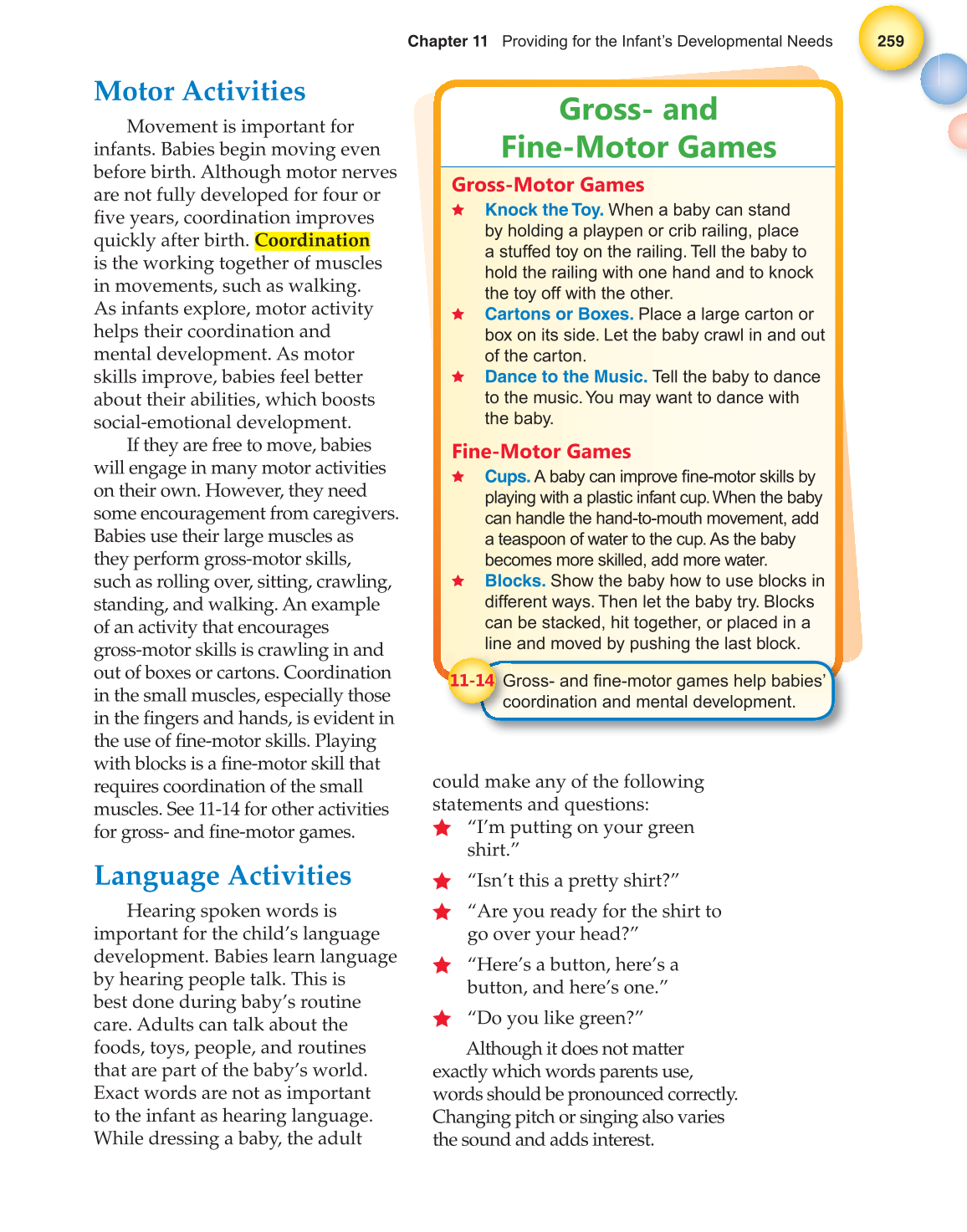259 Chapter 11 Providing for the Infant’s Developmental Needs
Motor Activities
Movement is important for
infants. Babies begin moving even
before birth. Although motor nerves
are not fully developed for four or
fi ve years, coordination improves
quickly after birth. Coordination
is the working together of muscles
in movements, such as walking.
As infants explore, motor activity
helps their coordination and
mental development. As motor
skills improve, babies feel better
about their abilities, which boosts
social-emotional development.
If they are free to move, babies
will engage in many motor activities
on their own. However, they need
some encouragement from caregivers.
Babies use their large muscles as
they perform gross-motor skills,
such as rolling over, sitting, crawling,
standing, and walking. An example
of an activity that encourages
gross-motor skills is crawling in and
out of boxes or cartons. Coordination
in the small muscles, especially those
in the fi ngers and hands, is evident in
the use of fi ne-motor skills. Playing
with blocks is a fi ne-motor skill that
requires coordination of the small
muscles. See 11-14 for other activities
for gross- and fi ne-motor games.
Language Activities
Hearing spoken words is
important for the child’s language
development. Babies learn language
by hearing people talk. This is
best done during baby’s routine
care. Adults can talk about the
foods, toys, people, and routines
that are part of the baby’s world.
Exact words are not as important
to the infant as hearing language.
While dressing a baby, the adult
Gross- and
Fine-Motor Games
Gross-Motor Games
Knock the Toy. When a baby can stand
by holding a playpen or crib railing, place
a stuffed toy on the railing. Tell the baby to
hold the railing with one hand and to knock
the toy off with the other.
Cartons or Boxes. Place a large carton or
box on its side. Let the baby crawl in and out
of the carton.
Dance to the Music. Tell the baby to dance
to the music. You may want to dance with
the baby.
Fine-Motor Games
Cups. A baby can improve fi ne-motor skills by
playing with a plastic infant cup. When the baby
can handle the hand-to-mouth movement, add
a teaspoon of water to the cup. As the baby
becomes more skilled, add more water.
Blocks. Show the baby how to use blocks in
different ways. Then let the baby try. Blocks
can be stacked, hit together, or placed in a
line and moved by pushing the last block.
could make any of the following
statements and questions:
“I’m putting on your green
shirt.”
“Isn’t this a pretty shirt?”
“Are you ready for the shirt to
go over your head?”
“Here’s a button, here’s a
button, and here’s one.”
“Do you like green?”
Although it does not matter
exactly which words parents use,
words should be pronounced correctly.
Changing pitch or singing also varies
the sound and adds interest.
11-14 Gross- and fi ne-motor games help babies’
coordination and mental development.
